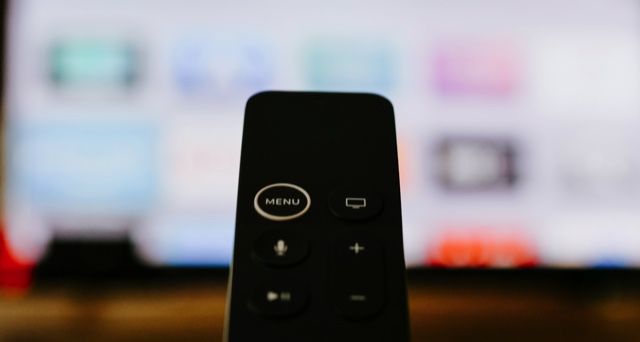También de este lado hay sueños. On this side too, there are dreams. Lydia Quixano Pérez runs a bookstore in the Mexican city of Acapulco. She has a son, Luca, and by and large, they live a fairly comfortable life. But when Lydia’s wonderful journalist husband publishes a tell-all profile of Javier, the jefe of the newest drug cartel, Lydia and eight-year-old Luca are forced to flee. None of their lives will ever be the same as they join the countless people trying to reach el norte. Everyone is running from something. But what exactly are they running to? I’ve always been a politics and current events junkie, but my addiction to the news really spiked during the 2016 presidential election. Unlike when I was a feisty pacifist protester as a teen, life now means an over-saturation of media available to gorge on. For most of the first two years of the Trump presidency, I was glued to the News app or Politics Twitter, and then I’d spend hours watching MSNBC each night. I discovered politics podcasts and delighted in the hours and hours of content ready to devour. This addiction was partially because I’m a politics fan, but also because I worried about missing the action. I thought that the better informed I was, the less I’d feel panicked about the frightening turn American had taken. Even taking one night off from the news made me worry about what I missed. Another term for this anxiety is Fear of Missing Out (FOMO). While FOMO has dominated much of my time and attention the last few years and pulled me away from books, I’m happy to say I’m recovering from it and finding myself reconnecting with my love of books. Here’s how I did it, and how you, too, can overcome FOMO and bring books back into your life in three easy steps.
STEP 1: Find Out Just How Much Time You Could Be Reading
Feel like you’re caught in the news tornado? Spending hours a day in front of a screen that’s parsing the daily drama? It’s time to break the cycle. Get ready, because this is the biggest step you’ll take to overcome FOMO. For this first step, take inspiration from money diaries that many people keep to see where their money is going as they try to find a good budget. Over the next few days—and I recommend at least 72 hours—write down every minute you spend on listening to a podcast, scrolling a news app on your phone, thumbing around Twitter, or watching cable news. You’ll see how quickly the minutes add up into hours. Then take the average day and multiply it by 365. For instance, when I had the full early evening block of MSNBC on each night, from 5 PM to 10 PM, I was giving five hours of my attention to the news each day. Scary, right? Then I multiplied it by 365: 1,825 hours or 76 days of the year. Yep. I was spending 76 days of the year trapped in the news tornado, all because of my intense FOMO. Making that calculation was a horrifying, sobering truth that, more than anything, made me realize I didn’t want to waste my life like this. If you’ve done the calculation yourself, whether you’re spending more or less time than I was hooked to current events, take a deep breath and know we’ll work through this. What you want to do now is replacing that average block of time with reading time. I’m not suggesting going all in from day one. Instead, try to ease into it. Instead of wiping out five hours of tuning in for five hours of reading right away, make little swaps: start by switching out one hour of newsy time with one hour of reading, and so on. Eventually, you’ll find a balance that works for you.
STEP 2: Get in the Practice of Going off the Grid
I struggle with depression, which often makes me want to isolate myself by going off the grid. When I’m in a funk, I periodically delete my social media apps, sign out of accounts or disable them, and put my phone on airplane mode or even turn it off completely to shut the world out. Probably because my ennui is so strong then, I don’t really care about missing out on politics and the like when I get into such a nihilistic space. And let’s not forget that following politics and current events can be a triggering experience that bolsters depression, loneliness, and detachment, anyway. Although it’s not exactly healthy to experience these funks, I have been able to draw some good from that behavior. I noticed that each time I was descending down deep, I was actually reading more since I had shut the world out and it was just me and the book in front of me. By going “off the grid,” I could really concentrate and focus on the books I was reading. I was making the unintentional but healthy choice to prioritize reading—my true passion and greatest comfort—over the news.
STEP 3: Become Better Informed About the Same Topics Through Books
As I became more of a nonfiction fan, I read books and magazine articles on current events and politics, so that even though I wasn’t glued to MSNBC each night, I was still engaging with the same issues in a more in-depth way. It can feel totally exhausting to keep up with a news cycle that changes every hour. Just listening to politics podcast can be overwhelming since information can quickly change. Who hasn’t listened to a podcast that was irrelevant by the end of the day? Next time you get the itch to tune in and feed your fear of missing out, check out a book about today’s current events instead. You’ll get a more in-depth understanding of a topic, going beyond the superficial and really digging into the history, present, and future of an issue that matters to you. You’ll be even more informed than before, which makes listening to a podcast or news segment on the subject a much more enriching experience. Not sure where to start? Check out Book Riot’s many articles on books and politics and my list of 50 Must-Read Books about American Politics. Through these three steps, you can begin to take back your life from intense FOMO. You’ll be able to create a healthier balance between current events and a reading practice that brings you joy, expertise, and relief.

